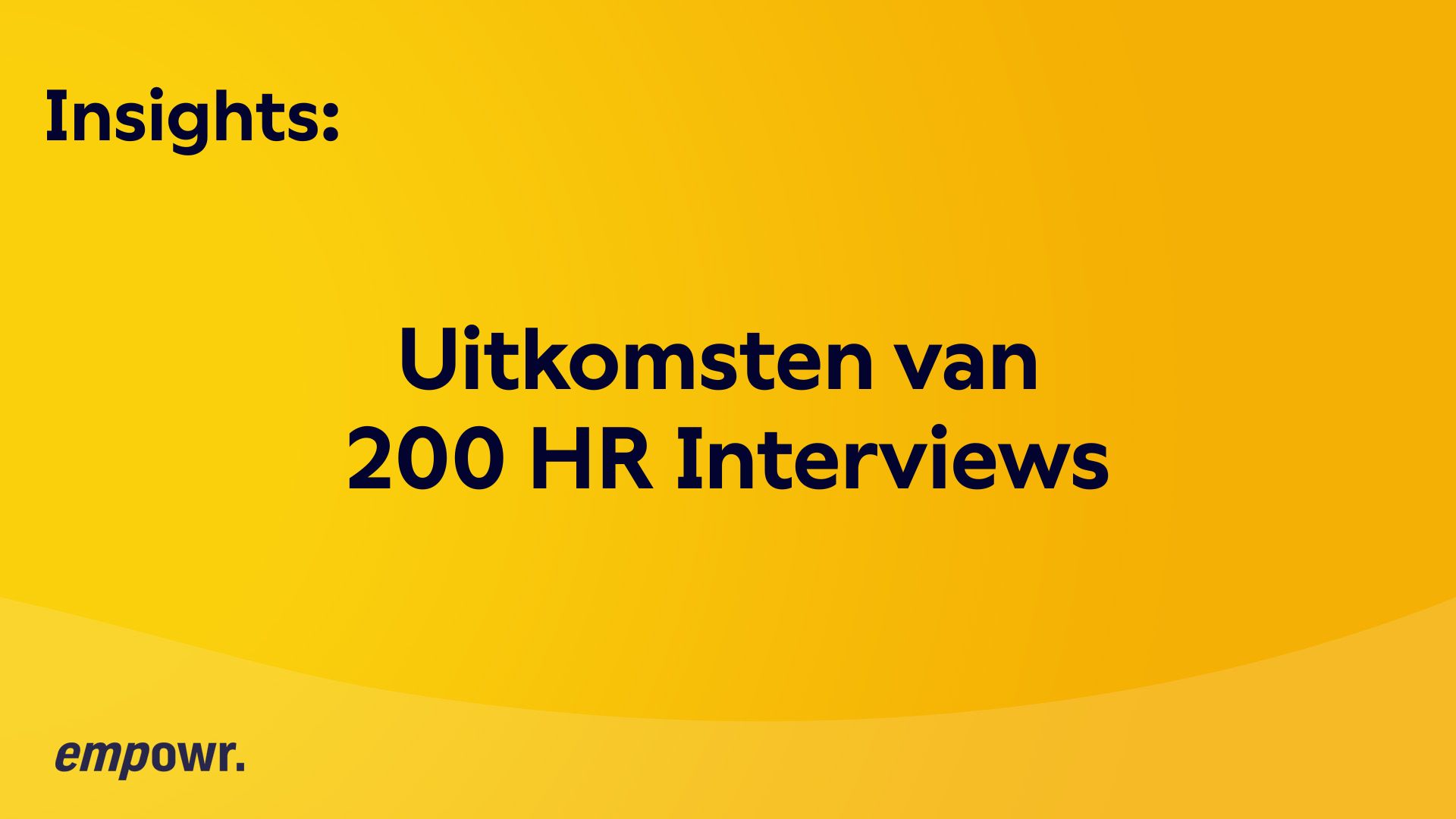Why Psychological Absenteeism will be one of HR's biggest challenges and how to deal with it
The rise of mental absenteeism as an HR priority
Psychological absenteeism is one of the most pressing challenges within organizations today. Where physical complaints and illnesses accounted for the majority of absenteeism rates for a long time, mental health now plays at least as important a role. For HR teams and managers, this means looking for solutions that go beyond a standard absenteeism protocol. But what makes mental absenteeism so complex? And how can we really make a difference as HR professionals?
1. The impact of mental absenteeism: not visible, but palpable
Mental complaints may not be immediately visible, but the consequences are all the more obvious. Employees with mental health problems often face long-term stress, fatigue and difficulty concentrating. This not only results in lower productivity, but also has a negative impact on the work climate and the team. Moreover, recovering from mental complaints requires patience and customization, because causes are often unclear.
A real-life example: Take the story of Anna, a marketing manager at a major media company. After months of increasing workload and personal challenges, Anna fell out with a burnout. Although her manager suspected that the work pace was the cause, after discussions with HR, it turned out that her situation at home — she combined a busy job with informal care — also played a major role. The organization offered coaching, set flexible working hours and provided better workload monitoring in the team. Anna was able to return at her own pace after six months and is now fully functioning again..
2. Factors that contribute to Psychological Absenteeism: From work pressure to culture
Psychological absenteeism is often caused by a combination of factors. High workload, a poor work-life balance and a lack of support from the organization often play a role. But corporate culture is also crucial. In a culture where openness and well-being are not stimulated, employees feel less safe to raise problems, causing complaints to escalate.
Example: An organization that focused on the well-being of employees saw the difference in absenteeism rates. They invested in monthly wellbeing sessions and open conversations between employees and managers. This approach significantly reduced the number of employees reporting stress and measurably decreased absenteeism. The most important lesson? A culture where people feel supported makes a big difference.
3. How can HR reduce mental absenteeism?
Reducing mental absenteeism requires an integrated approach, focused on prevention, guidance and aftercare. This means more than offering a mindfulness app; it's about a cultural change where mental health is just as important as physical health. HR can take the lead in this.
An inspiring example: An organization within the healthcare sector introduced workshops on resilience and stress management. Employees received practical tools to better deal with workload. In addition, the organization appointed a counselor, which led to a measurable decrease in long-term psychological absenteeism within a year. Employees said they felt heard and that the availability of this support helped them address complaints early.
Put psychological absenteeism on the agenda
Psychological absenteeism requires a focused approach and involvement at all levels of the organization. By investing in prevention and an open culture, you are building a healthier and more vital organization. Do you want to know how your organization can take steps? Then feel free to contact us.
.jpg)


